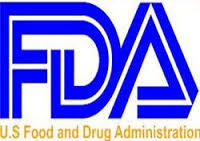 Volume 389, Number 10084
Volume 389, Number 10084
27 May 2017
WORLD REPORT Scott Gottlieb becomes commissioner of the FDA, as the agency’s role is threatened by an administration adverse to regulation. Susan Jaffe, The Lancet’s Washington correspondent, reports.
Only 6 months ago, Scott Gottlieb was still a resident fellow at the American Enterprise Institute, a co nservative thinktank, when he presented testimony to a US Senate committee investigating prescription drug prices. Before he began, he volunteered that he was “a reformed government bureaucrat, having worked at FDA [US Food and Drug Administration] for a number of years”. He blamed astonishing price hikes—500% in the case of Mylan’s EpiPen—on “regulatory failures stemming from FDA policy, and I think that policy can be fixed”.
nservative thinktank, when he presented testimony to a US Senate committee investigating prescription drug prices. Before he began, he volunteered that he was “a reformed government bureaucrat, having worked at FDA [US Food and Drug Administration] for a number of years”. He blamed astonishing price hikes—500% in the case of Mylan’s EpiPen—on “regulatory failures stemming from FDA policy, and I think that policy can be fixed”.
Gottlieb was sworn in as the 23rd commissioner of the FDA after being approved earlier this month by the US Senate, over the strong objections of most Democrats. Now Gottlieb will have a chance to fix a daunting array of policies. [Continued here] …

 The US Congress has become famous for political gridlock but s
The US Congress has become famous for political gridlock but s



